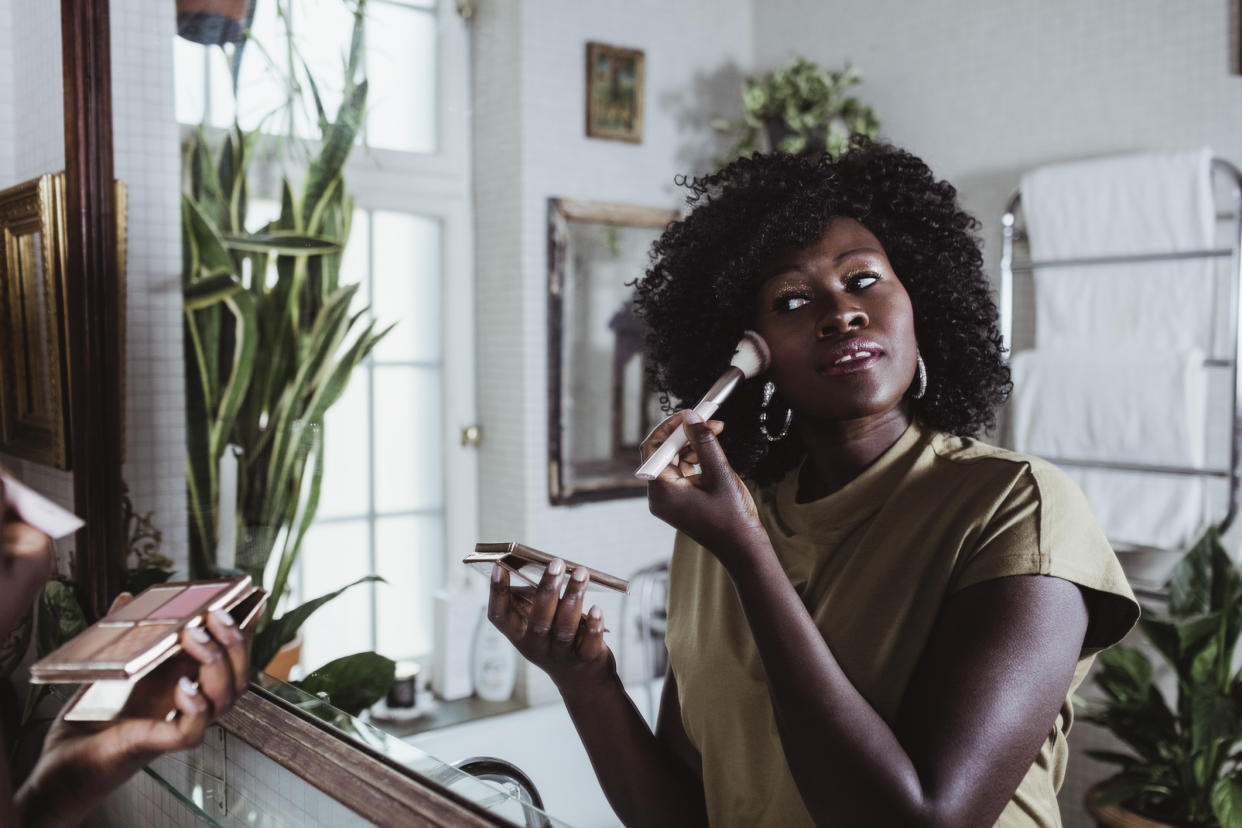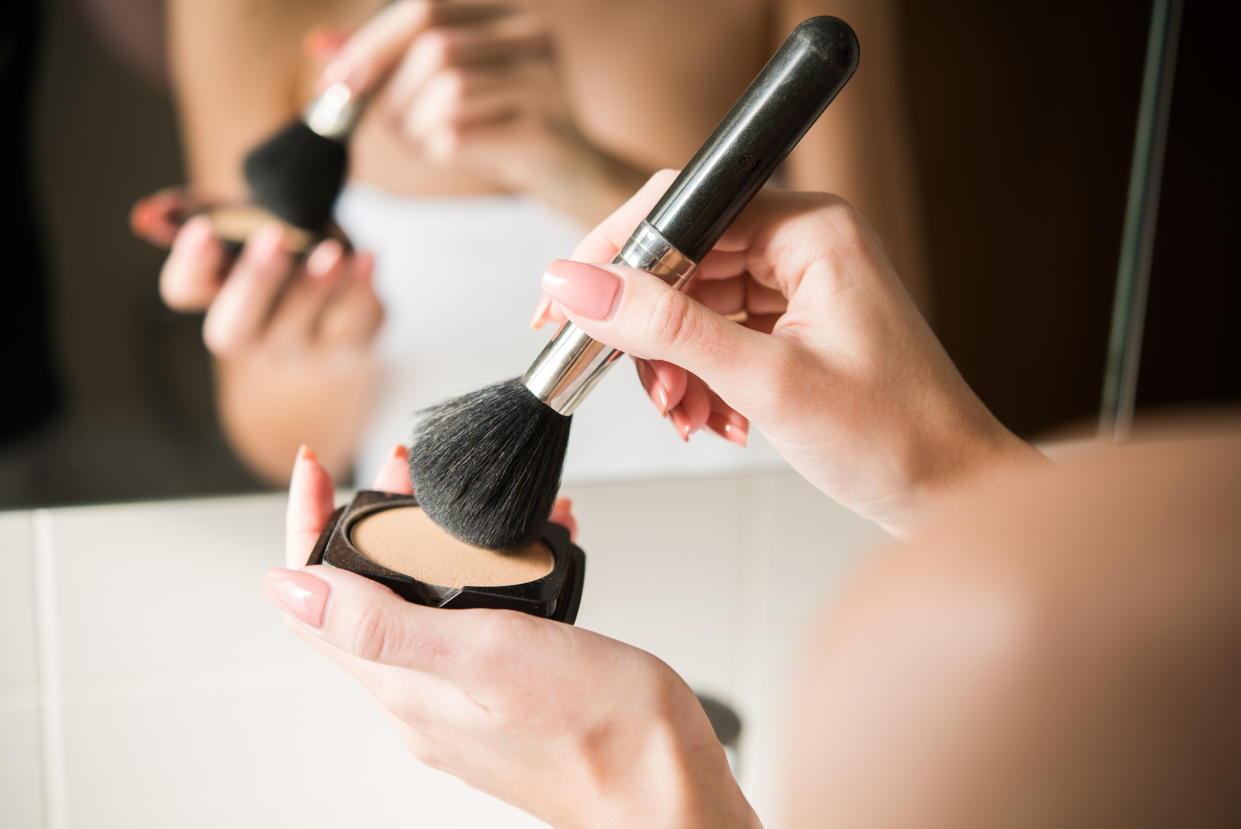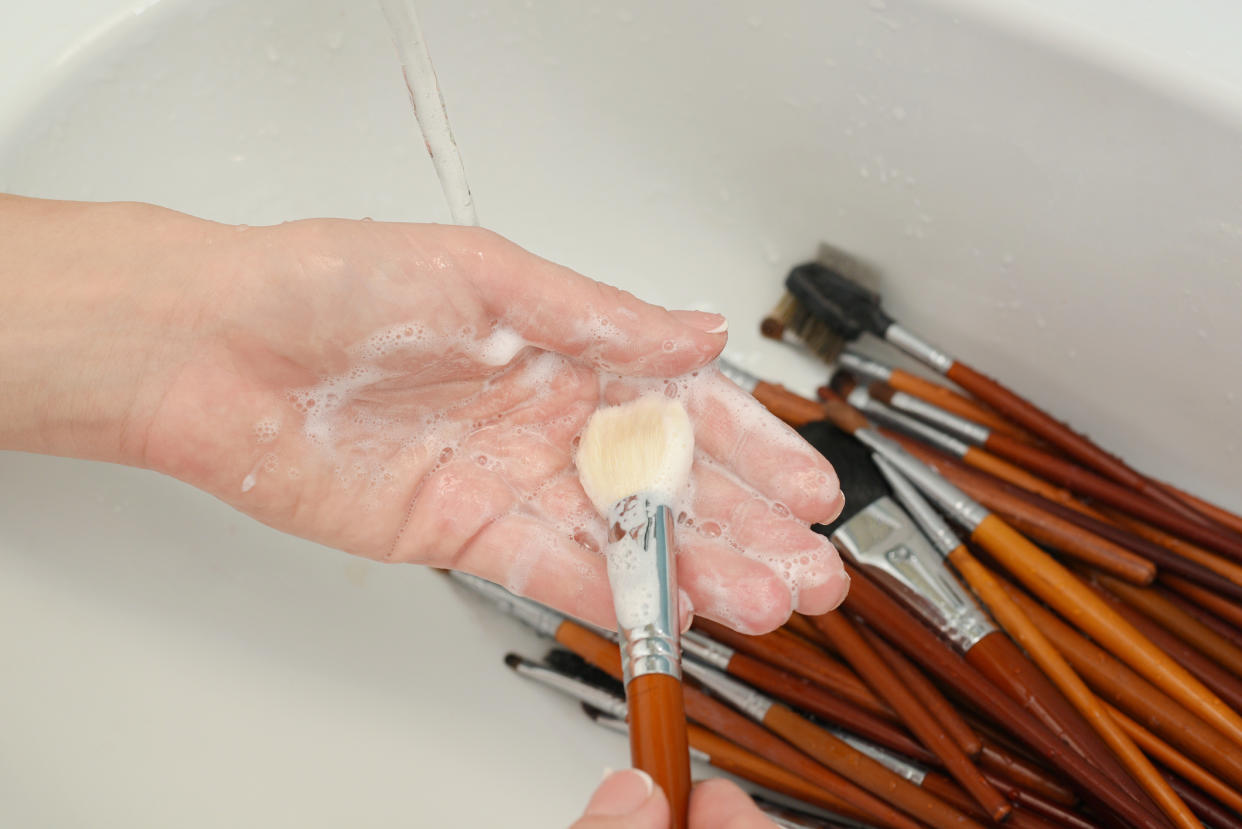How often do you need to clean your make-up brushes?

Time to fess up. When was the last time you cleaned your make-up brushes? Not washing them often enough is a beauty mistake you're likely making, not only for the sake of your brushes, but also for your skin and general health.
That's because dirty make-up brushes can harbour bacteria, oil and dirt if not cleaned on a regular basis and this can lead to some pretty nasty infections.
“Dirty makeup brushes can carry infection-causing fungus species and the bacteria E. coli, streptococcus or staphylococcus," Dr Gareth Nye, a programme lead for medical science tells beauty brand Glow Hub.
“A recent study from Aston University showed 96% of make-up brushes tested contained fungal growths."
It's a bit of a problem, therefore, that the same study showed 93% of users have never cleaned their brushes.
Why are our make-up brushes so dirty?
Dr Nye says make-up brushes are prone to carrying bacteria due to the bacteria that normally reside on the skin being picked up on the brushes and then being allowed to grow and spread.
“Essentially the brushes will start collecting dirt, pollutants, oils from the skin and dead skin cells, which act as a breeding ground for bacteria leading to breakouts and skin irritation but potentially some nasty eye infections too," he adds.
Interestingly, the worst offender for carrying bacteria the eye shadow brush.
And if you keep your make-up brushes in the bathroom, you might want to look away now as Dr Nye says it is possible E. coli could have transferred to your tools via a faecal oral route.
"They [your make-up brushes] will have come into contact with particles of poo at some point to develop E. coli cultures," he explains.
"This could be due to being kept in the bathroom near a toilet or poor hand hygiene."

Keeping your brushes face up is another potential germy issue.
"If make-up brushes are placed face up, they are exposed to dust and fungal spores that might fly around the house," explains Dr Georgios Efthimiou, lecturer in microbiology at Hull University.
"Dust can carry bacteria, fungi and dust mites. Brushes also come in contact with skin microbes - some might be pathogenic Staphylococcus aureus, Candida albicans etc. They might cause boils, rash, redness, itchiness or even eczema."
And due to the application proximity to the eye Dr Efthimiou says there is also a risk of eye infection from various microbial pathogens.
To protect brushes from such grim exposure, Dr Efthimiou recommends placing them face down in a cup, or inside a box or drawer.
How often should we be cleaning our make-up brushes?
If you want to keep spot breakouts at bay and avoid spreading bacteria from your brushes to your face, Dr Nye recommends cleaning make-up brushes every 1 to 2 weeks.
This may sound excessive, but it is necessary as using a dirty eye shadow brush can lead to nasty infections and discomfort.
"To avoid bacteria growth, good hygiene is key," he adds.
“It's recommended that you clean make-up brushes every 1 to 2 weeks by rinsing the ends of the brush in warm water or water and soap solution until the residue runs clear."
For a quick clean, Dr Nye says a water spray on the brushes’ bristles then wiping the brush on a tissue or kitchen roll could suffice.
"You may need to do this a few times until it no longer leaves a mark," he adds. "For a deep cleanse wet brush bristles in a sink of warm water and wash using a liquid hand soap. Rinse the brush head under clean, warm water and dry lying down."

Dr Efthimiou also recommends disinfecting your brushes.
"Disinfection methods may include use of 70% ethanol in water, 20% vinegar in water or a bit of mouthwash solution," he explains. "The brush has to be allowed to dry before use.
"I would avoid bleach or chlorine-based detergents (even when diluted) as they might irritate the skin/eyes."
When it comes to replacing your makeup brushes, Dr Nye says if you are maintaining good make up brush/sponge cleaning you shouldn't need to replace them too often.
But to further swerve infection he also recommends not sharing make-up and avoiding shop testers at all costs.
Hygiene: Read more
Dyson microbiologist shares top cleaning tips to beat bed bugs (Yahoo Life UK)
How often you should wash towels? Over a million Brits clean theirs just once a year (Yahoo Life UK, 4-min read)
The UK's most unhygienic habits, from sharing towels to not washing hands (Yahoo Life UK, 6-min read)


